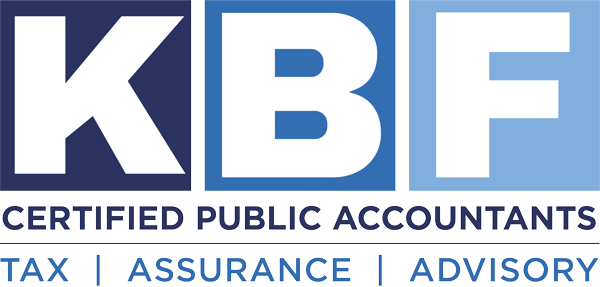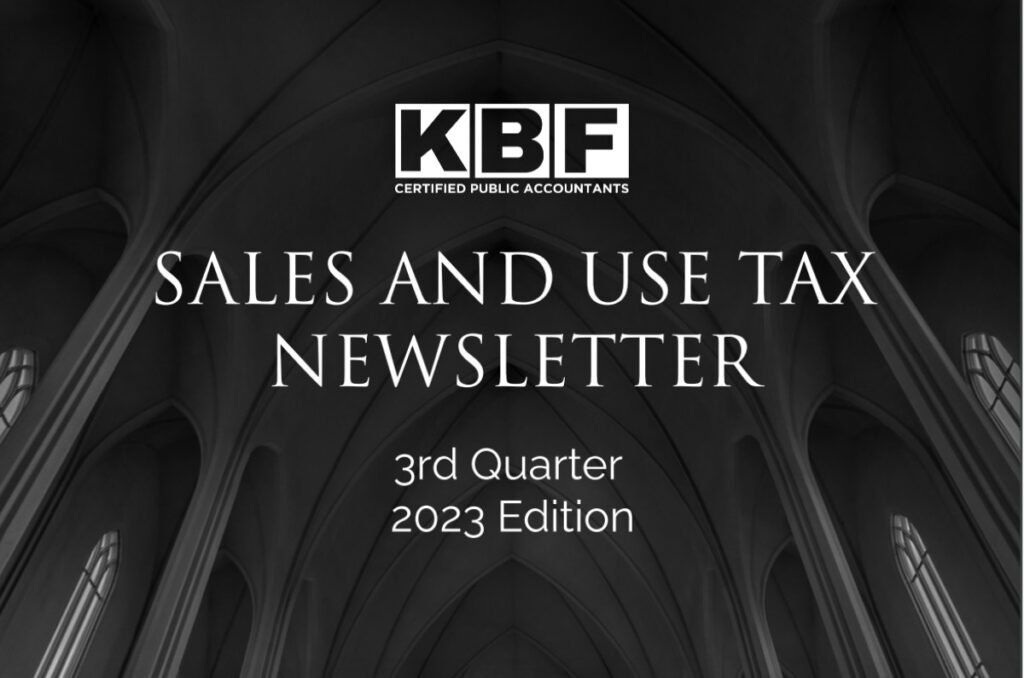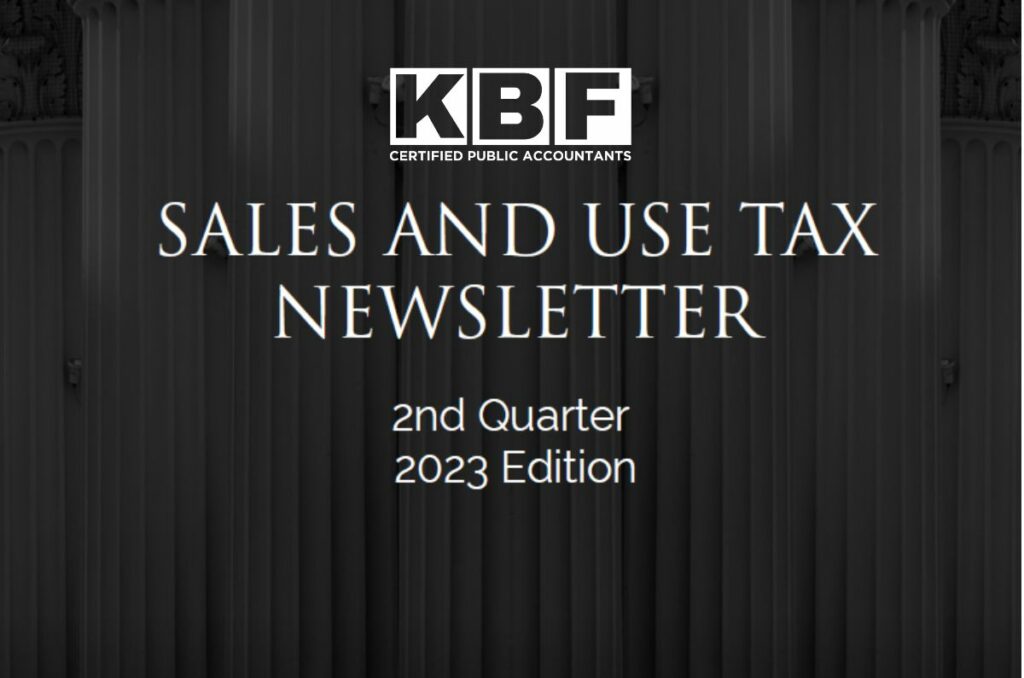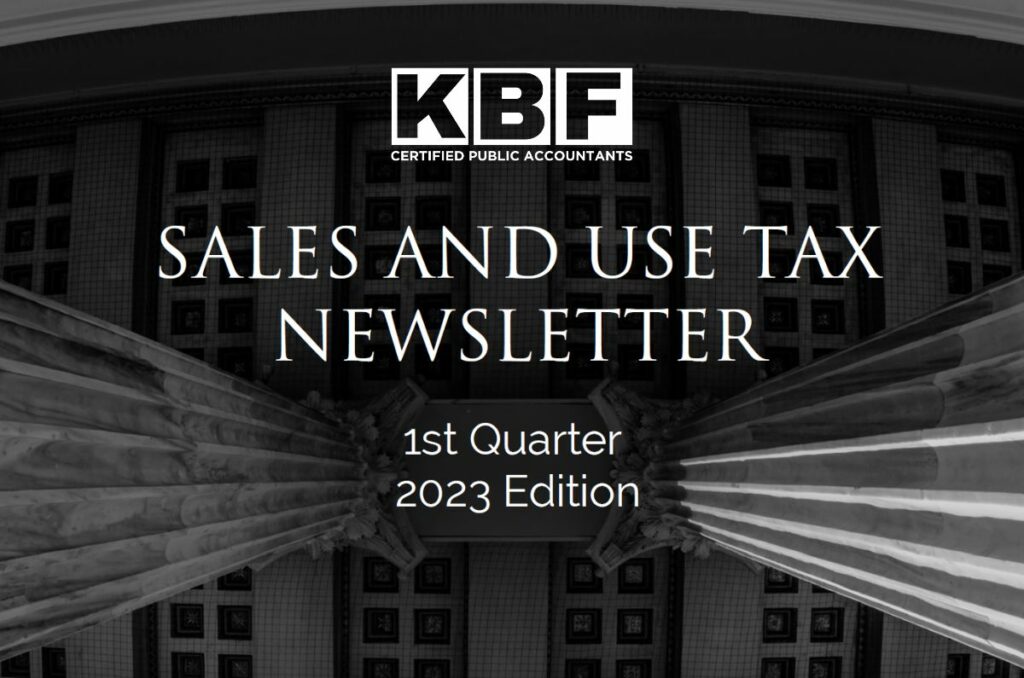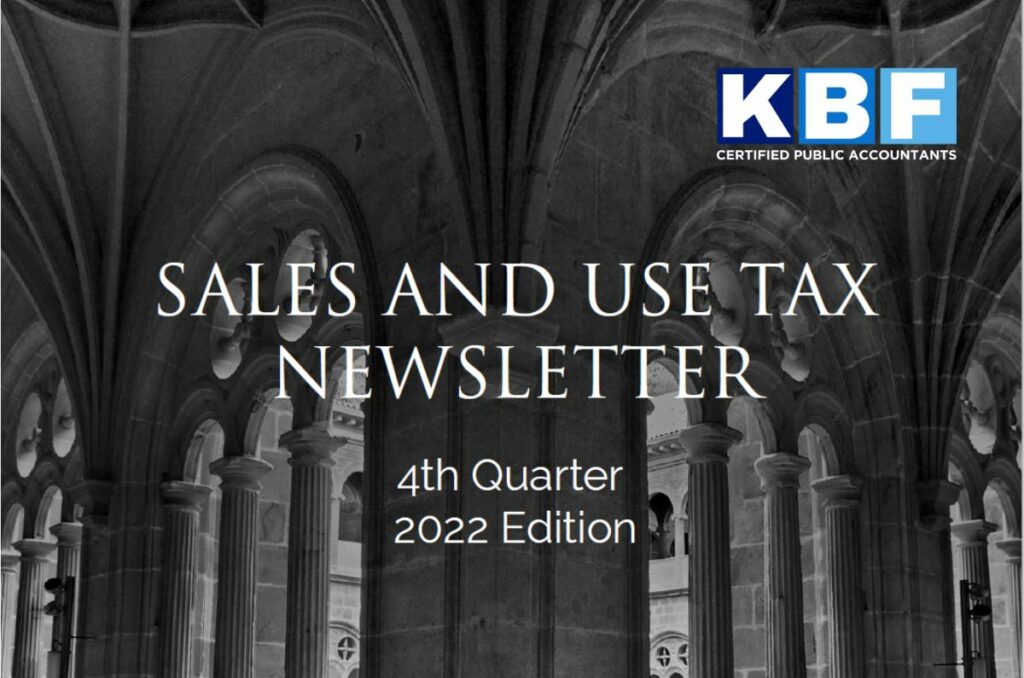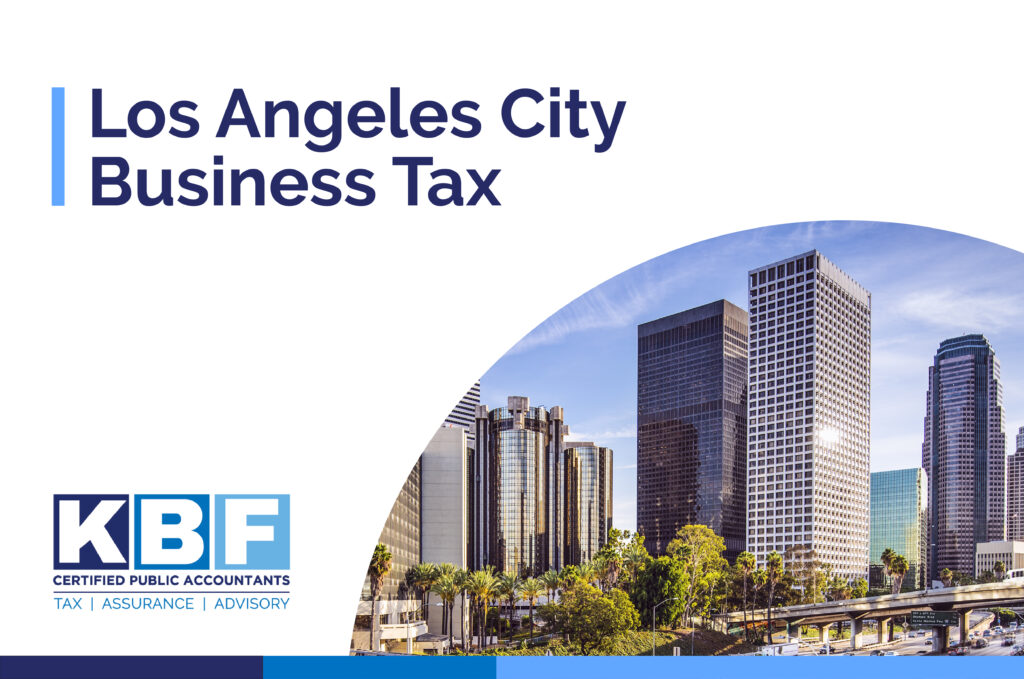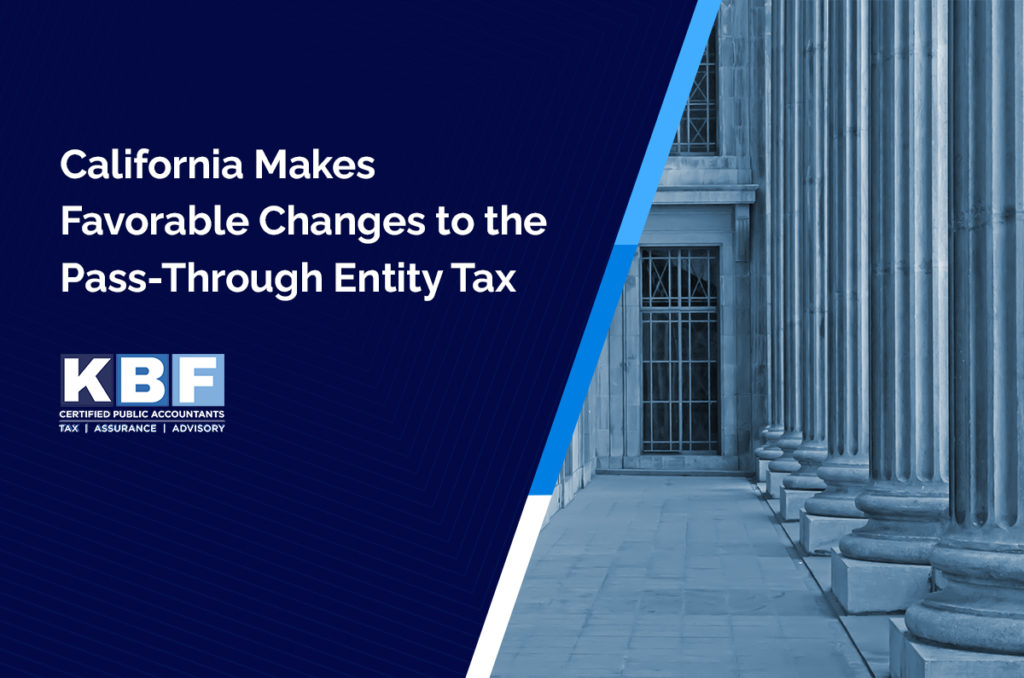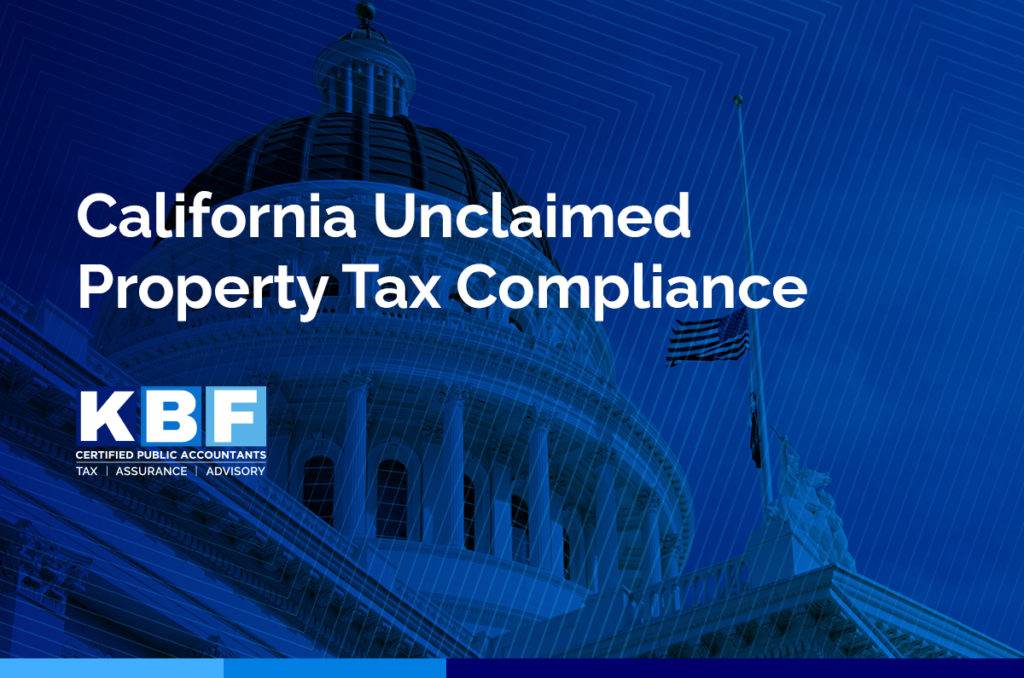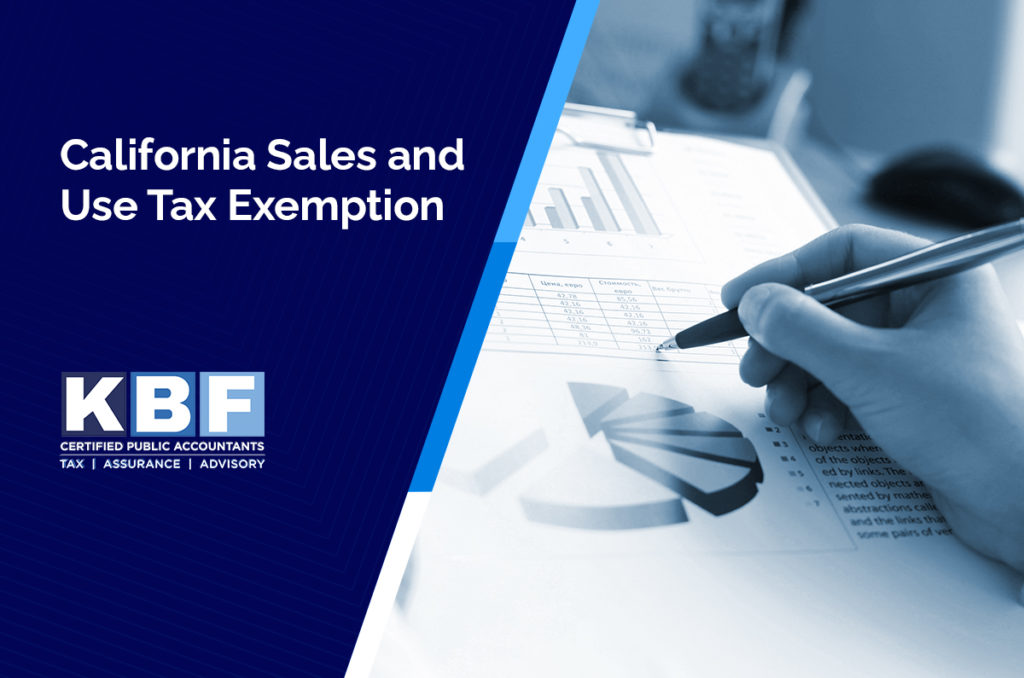California
KBF Sales and Use Tax Newsletter – 3rd Quarter 2023
KBF’s quarterly newsletter updates clients on sales and use tax news, developments, and trends from around the country. This edition provides the latest information on the tax status of remote software, digital goods, and virtual currencies in specific states. Additionally, it offers insights into recent updates regarding tax exemptions for select food items, as well…
Read MoreKBF Sales and Use Tax Newsletter – 2nd Quarter 2023
KBF’s quarterly newsletter updates clients on sales and use tax news, developments, and trends from around the country. This edition includes crucial updates on economic nexus standards and thresholds for various states, changes in the taxability of retail delivery fees, challenges in digital advertising tax, and the taxability of drop shipping transactions. Learn more about…
Read MoreKBF Sales and Use Tax Newsletter – 1st Quarter 2023
KBF’s quarterly newsletter updates clients on sales and use tax news, developments, and trends from around the country. This edition includes important rulings in taxable software services and digital goods, sales tax for third-party retailers, taxability of credit reporting services, sales tax for ticket resale, and more. Learn more about these developments by downloading the…
Read MoreKBF Sales and Use Tax Newsletter – 4th Quarter 2022
KBF’s quarterly newsletter updates clients on sales and use tax news, developments, and trends from around the country. This edition includes important filing deadlines for businesses, changes in tax rates, tax requirements on digital services and remote sellers, and more. Learn more about these developments by downloading the newsletter here.
Read MoreDoing Business in the City of San Francisco: Meeting Your Regulatory Requirements
Companies doing business in San Francisco (the city) are required to register and pay an annual registration fee. The general deadline for paying license fees for the 2023-2024 period is May 31, 2023. Furthermore, general businesses may be subject to up to four city taxes: the San Francisco Gross Receipts, Homelessness Gross Receipts, Commercial Rents,…
Read MoreLos Angeles City Business Tax: What You Need To Know
Companies and individuals doing business in the City of Los Angeles and its neighboring cities may find themselves subject to the annual Los Angeles City Business Tax (LACBT), due on February 28, 2023. With work-from-home arrangements becoming more common, along with broad nexus standards, companies may find themselves unexpectedly triggering a filing obligation or increasing/decreasing…
Read MoreCalifornia Makes Favorable Changes to the Pass-Through Entity Tax
Summary Since the passage of the Tax Cuts and Jobs Act (TCJA) in 2017, individuals who itemize their federal tax deductions have been limited to a $10,000 deduction for state and local income taxes. A pass-through entity (“PTE”) tax is meant to be a workaround for the federal $10,000 state tax limitation. It imposes an…
Read MoreCalifornia Unclaimed Property Tax Compliance
Summary Beginning in 2022, the California Franchise Tax Board (FTB) will require most businesses to disclose the status of their unclaimed property compliance on their business tax returns. This information will be shared with the State Controller’s Office (SCO) with the purpose of increasing the awareness of, and compliance with, unclaimed property reporting requirements. To…
Read MoreCalifornia Sales and Use Tax Exemption
Background California allows qualifying manufacturers and certain research and developers a partial exemption from sales and use tax on various purchases of machinery and equipment used primarily for manufacturing, research, and development activities. Additionally, the state expanded the partial exemption to certain power generators and distributors for equipment used for power generation, production, storage or…
Read MoreNew California small business hiring credit for 2020. Especially attractive for restaurants and retail industries
Small businesses are able to get a nonrefundable credit of $1,000 for each net full time equivalent employee addition. The total credit can range from $1,000-$100,000. The increase is measured by comparing the average number of full time employees in the second quarter of 2020 to the average number in the 5 month period 7/1/2020-11/30/2020.…
Read More